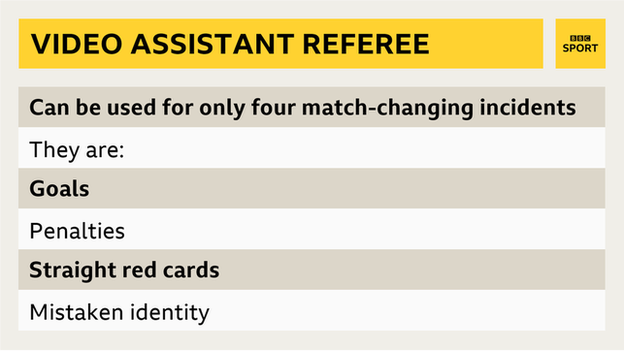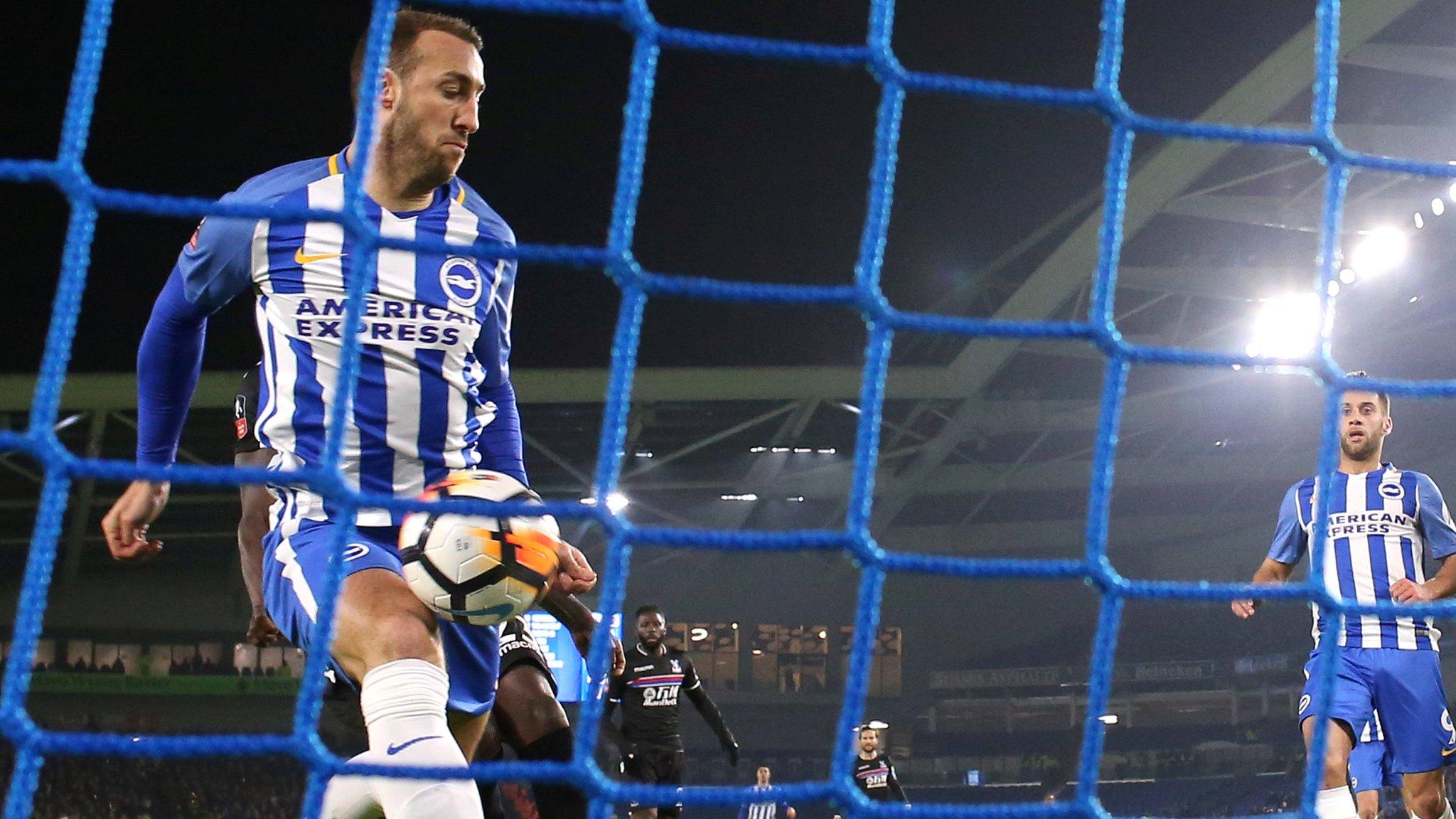VAR: Crystal Palace boss Roy Hodgson satisfied Glenn Murray goal 'genuine'
- Published
- comments
Crystal Palace manager Roy Hodgson was satisfied with how officials handled Glenn Murray's late winner as Brighton progressed to the FA Cup fourth round.
Monday's tie was the first competitive game in England to have the video assistant referee (VAR) system technology available.
Despite Palace's complaints that Murray may have handled the ball in scoring, a VAR review was not initiated.
Hodgson said disallowing the goal "would have been very harsh".
The former England boss added: "There's still a slight thought it might just have brushed off his arm into the goal, but if it'd been my player scoring that goal, I'd have been very upset if it had been disallowed for handball."
At the time, several Crystal Palace players protested because they felt Murray had deflected Uwe Hunemeier's header over the line with his hand.
Referee Andre Marriner did discuss the incident with the VAR Neil Swarbrick through his earpiece but he did not consult the pitch-side monitor because he was satisfied Murray's goal was legitimate.
A review of an incident is only triggered if there has been a clear and obvious error by the referee, but goals such as Murray's can be checked by the two officials without any official review.
"It was a genuine goal," said Hodgson.
"And the referee was helped by the fact he had Swarbrick in the VAR studio [in west London] making a judgement that'd help him out - so I have no complaints."
Murray was adamant that there was nothing controversial about his goal, which came after Bakary Sako had cancelled out Dale Stephens' opener.
"It wasn't my arm," said the forward. "I think VAR would have pulled me back if it was.
"I just needed to get something on it and luckily I did - I think I got my hip or my knee or something on it.
"As soon as I did it I knew it wasn't my arm. There was no doubt about it for me."
Brighton boss Chris Hughton said of the incident: "I couldn't see it that clearly. Obviously I saw it go in but I didn't know what the circumstances were.
"I knew Hunemeier rose at the far post and did really well, so no I couldn't see it and had to wait until we came in - but obviously it's been very clear that it didn't need VAR."
How does VAR work?
Opponents of VAR suggest it will upset the flow of the game, but it will normally be used during stoppages in play and limited to four types of match-changing incidents: goals, penalties, straight red cards, mistaken identity.
When a VAR review is triggered, fans will see the referee 'draw' a rectangle with his arms to replicate a TV screen. It is important to note it can be either the referee or the VAR who decides whether an incident needs to be analysed.
It will then take one of two forms, with the first likely to be less controversial.
If a player has scored a goal from an offside position, for example, the VAR will inform the referee there is a factual error on a clear situation that does not require the referee to review the video. The referee will then make the 'TV screen' signal and change the original decision.
In situations that are less clear, the VAR will advise the referee to look at the video for what is called an 'on-field review'. This is where the referee will move to the side of the pitch to review the footage on a monitor.
Following their review, the referee will make a 'TV screen' signal and communicate the final decision.
Fans in the stadium won't be able to view replay pictures, but supporters watching at home will see the same camera angles as the referees, so they should at least be able to get an idea of which way the decision is going.

Analysis
BBC sports news correspondent Richard Conway
"I have spoken to the match centre in west London and they tell me that the referee did consult with the official there to see if it was a goal. The goal stood.
"This is a system that needs time to bed in. A final decision on whether it will be used is coming. It is expected to be used more widely from next season. Fans will have to get used to it.
"The communication between officials, and making sure everyone is aware of it, is what needs to be decided."
Right decision, but confusion remains
Jeff: I think people don't quite understand what VAR is. The referee has no decision to use it. The VAR ref decides if is should be.
Alex Haworth: What was actually wrong with the way VAR was used tonight?
CM: People criticise refs making mistakes, people mock VAR, what's their solutions to the horrific decisions made on a regular basis?
- Published29 December 2017

- Published8 January 2018
